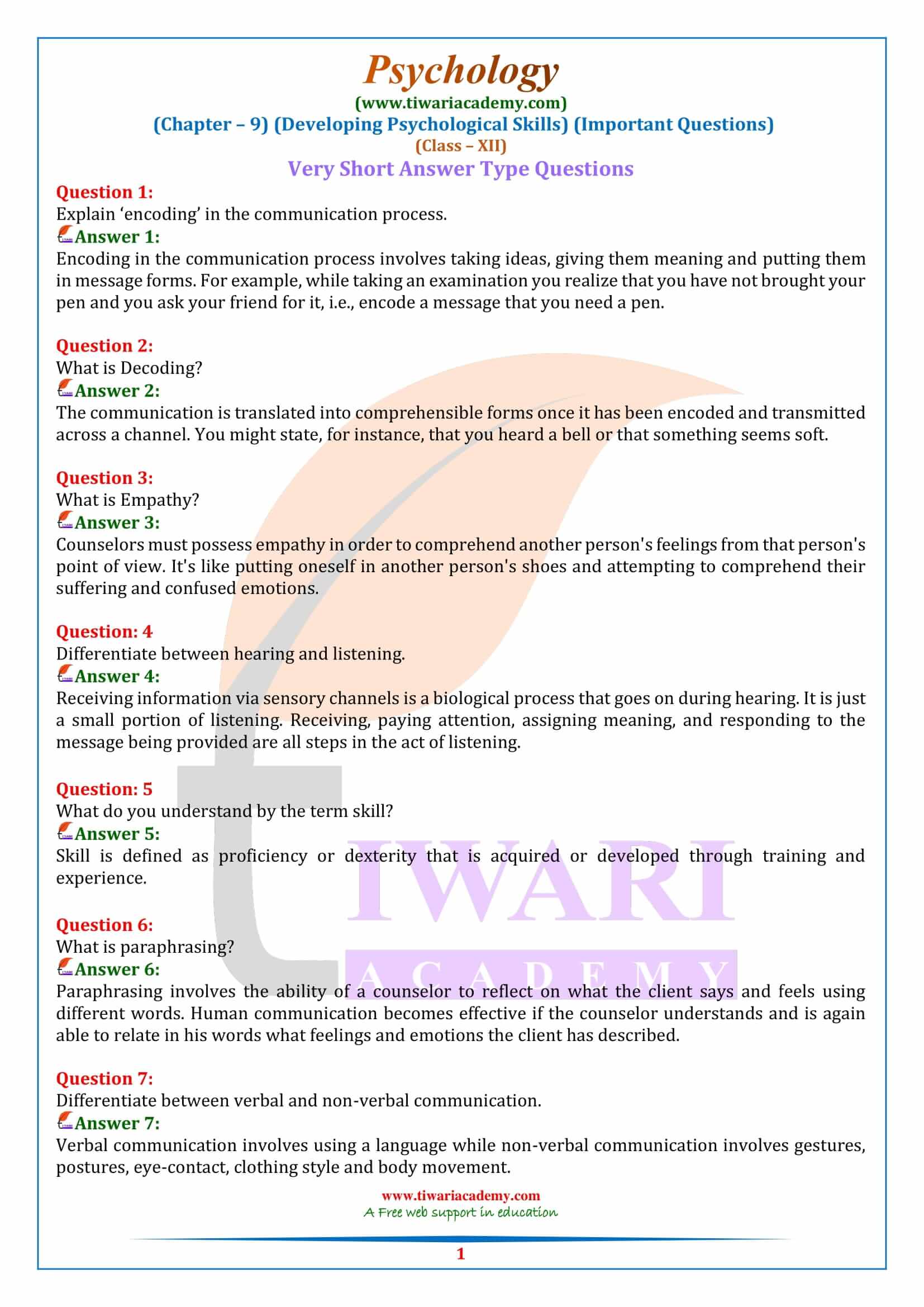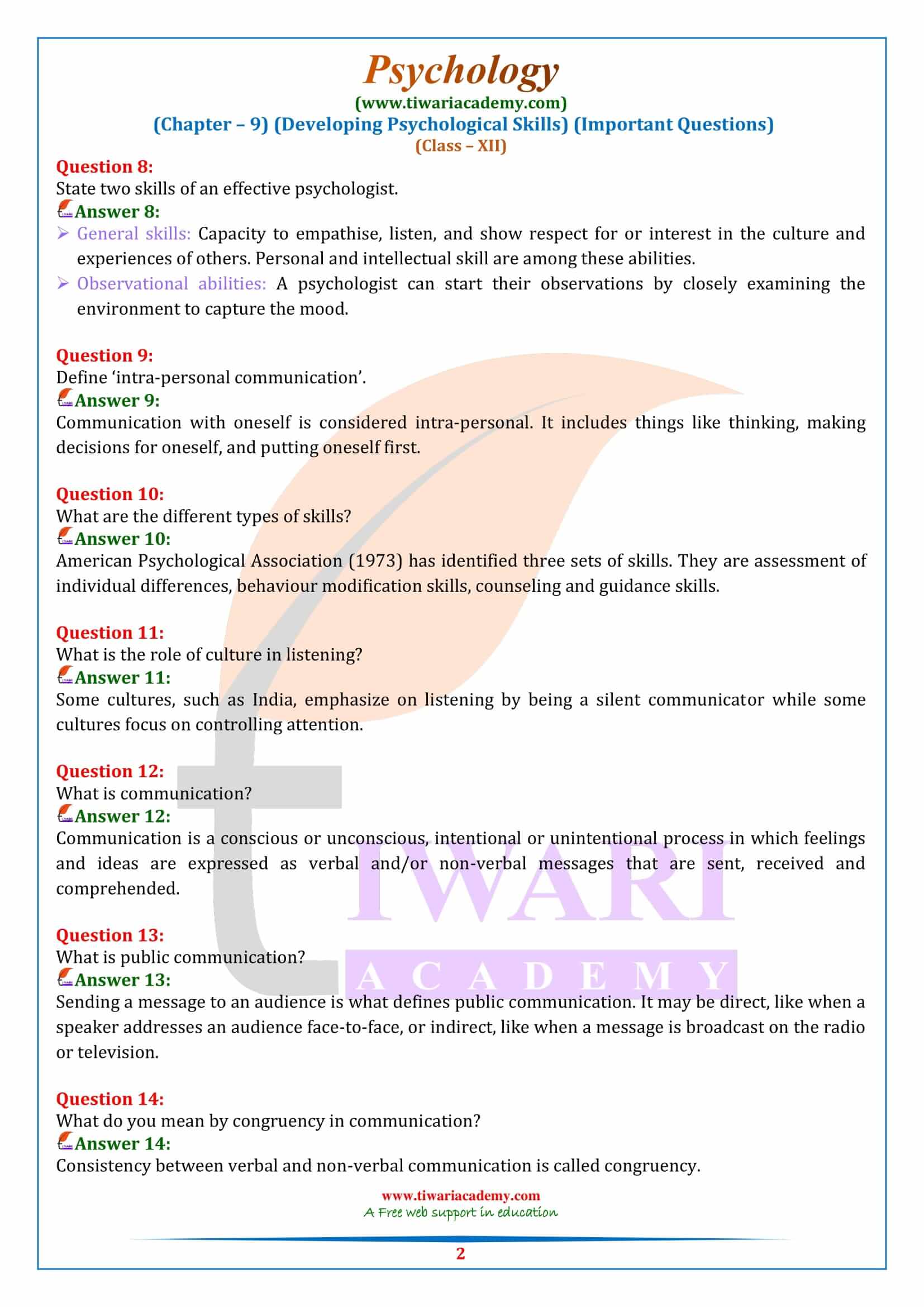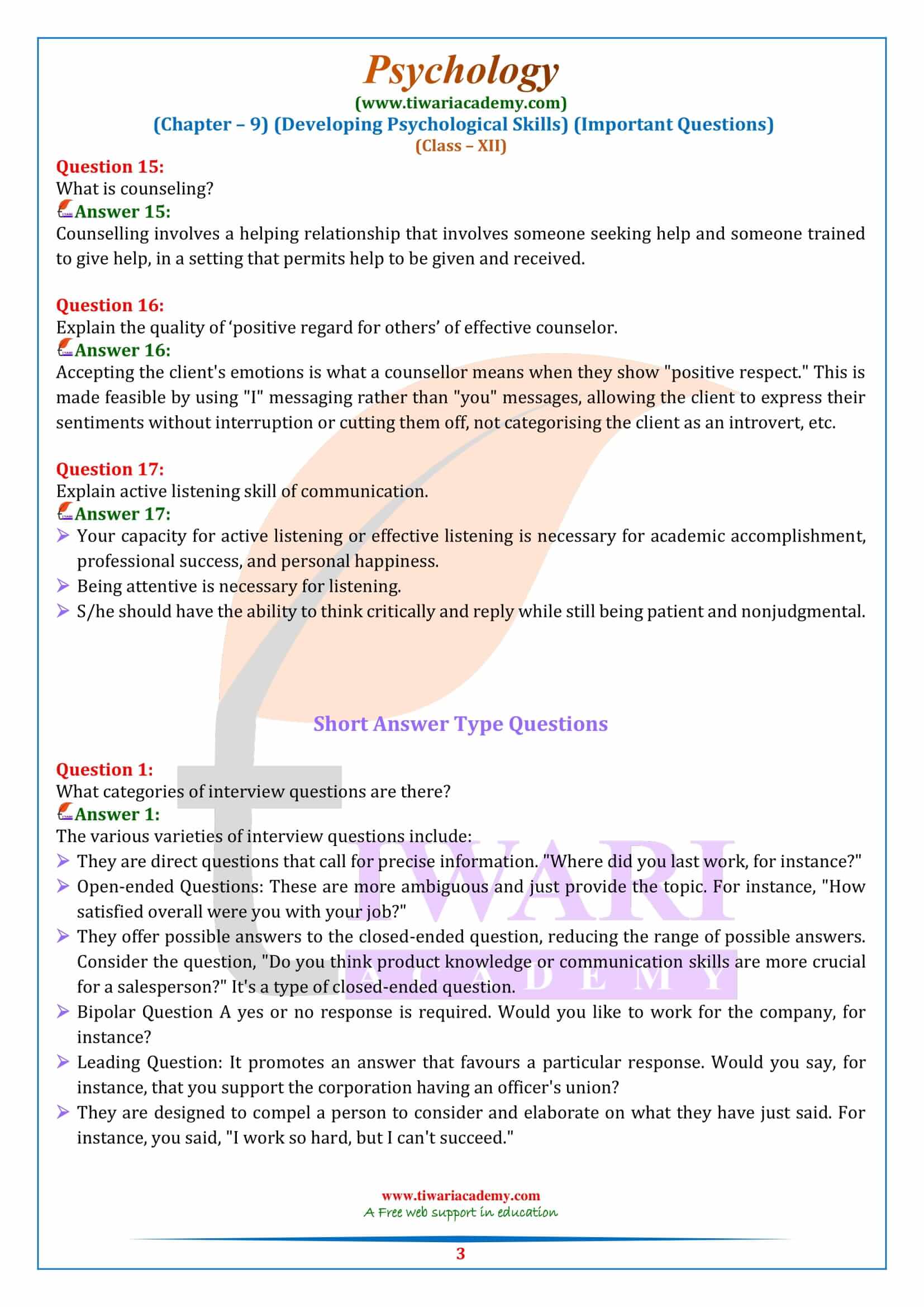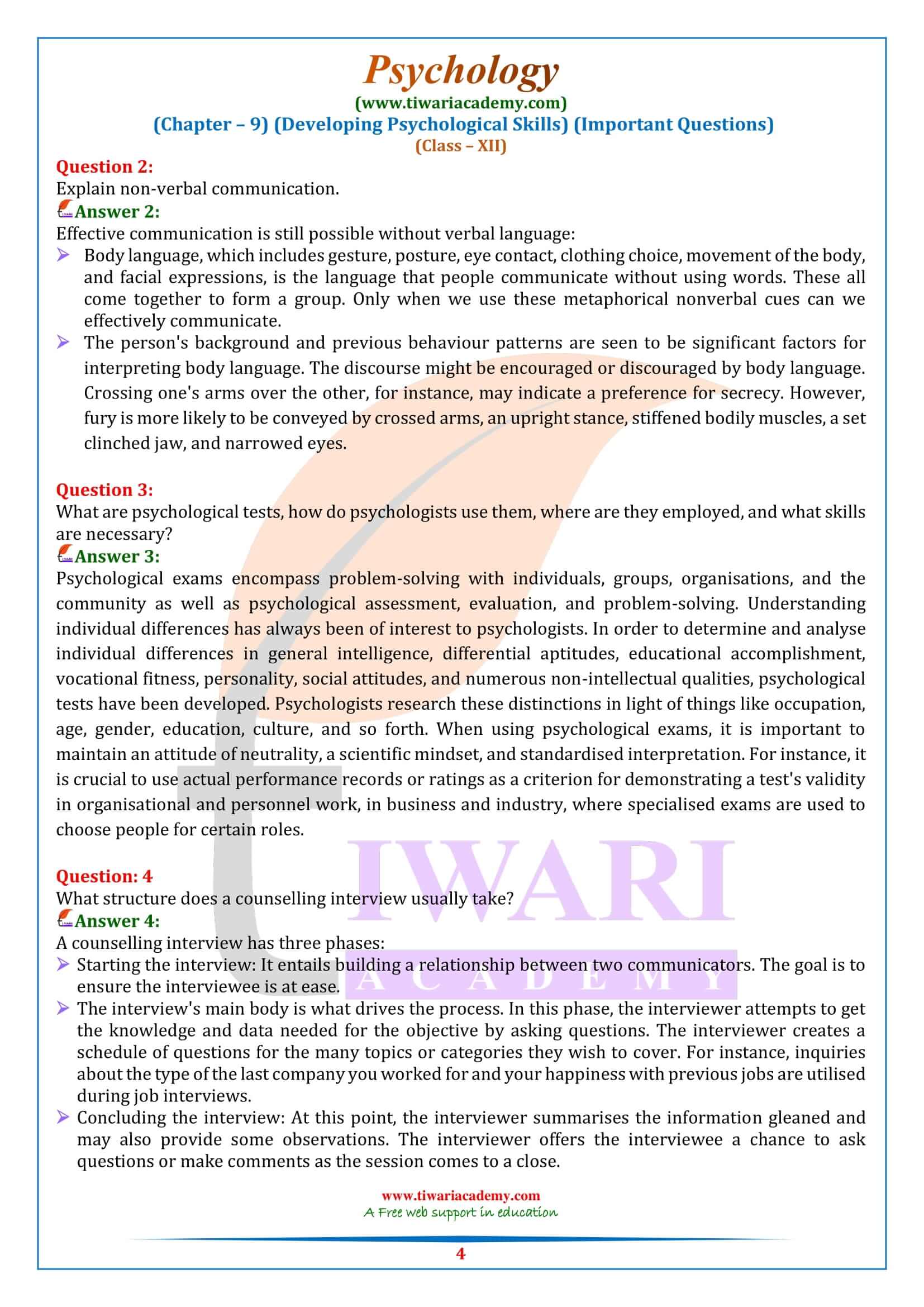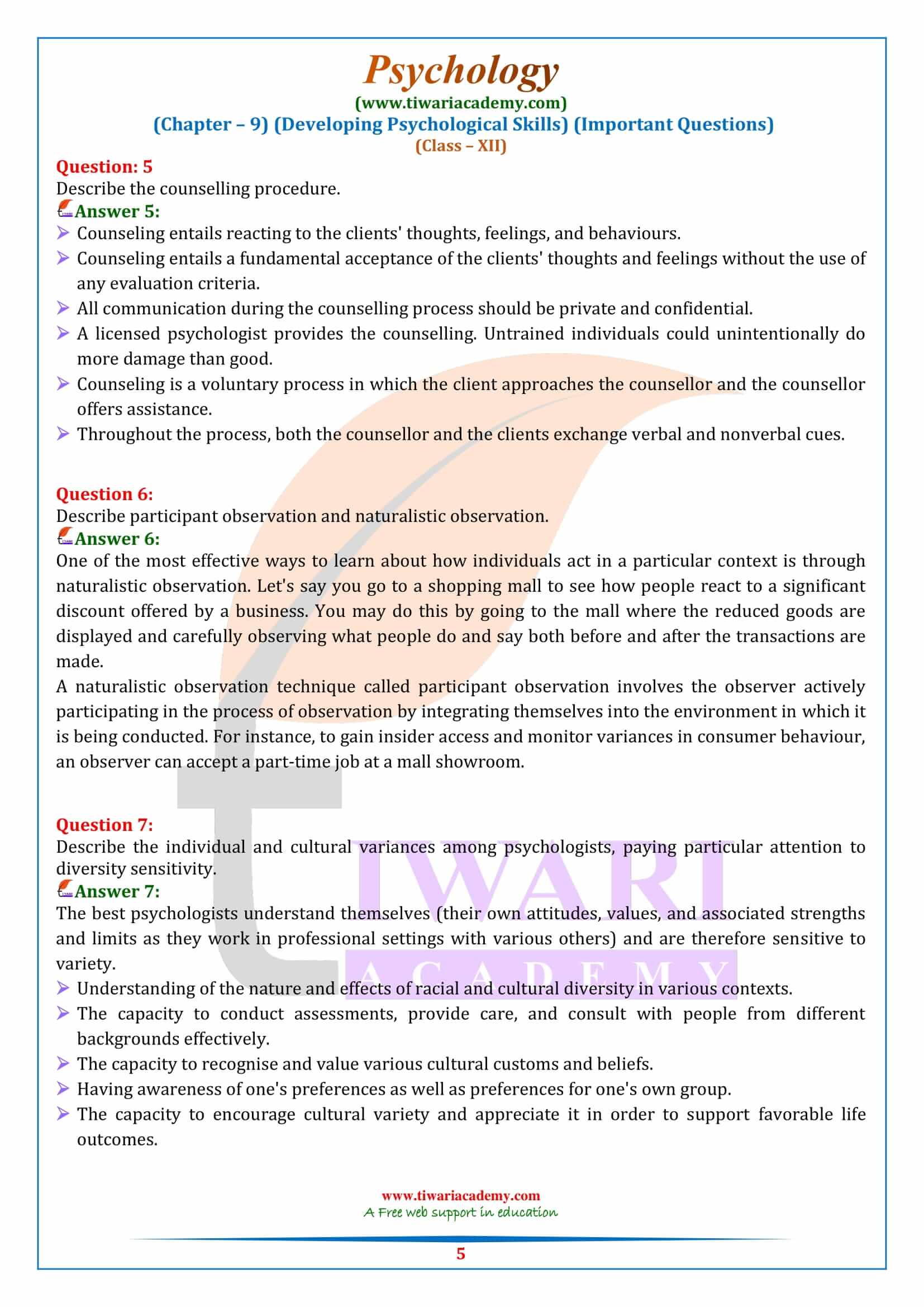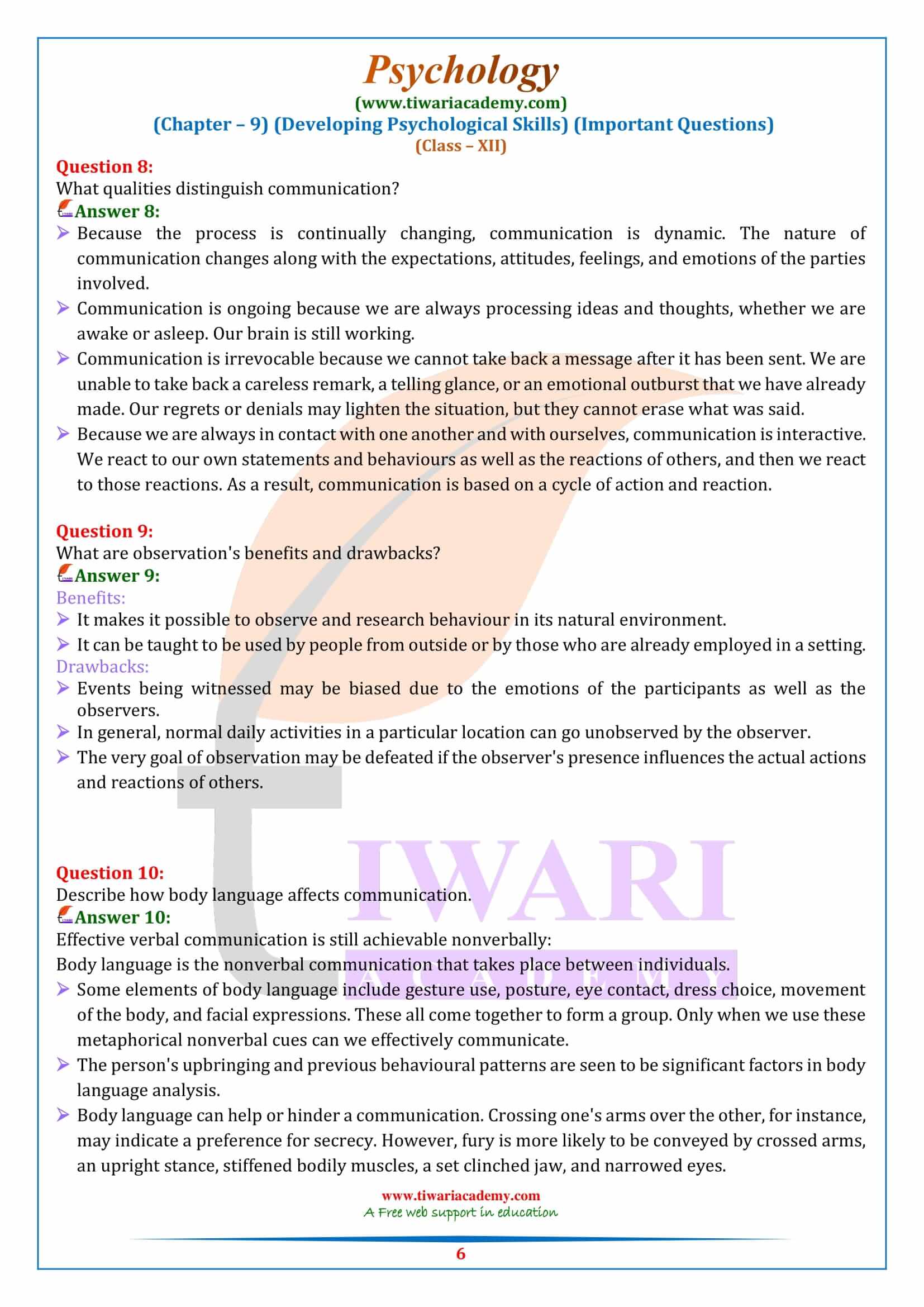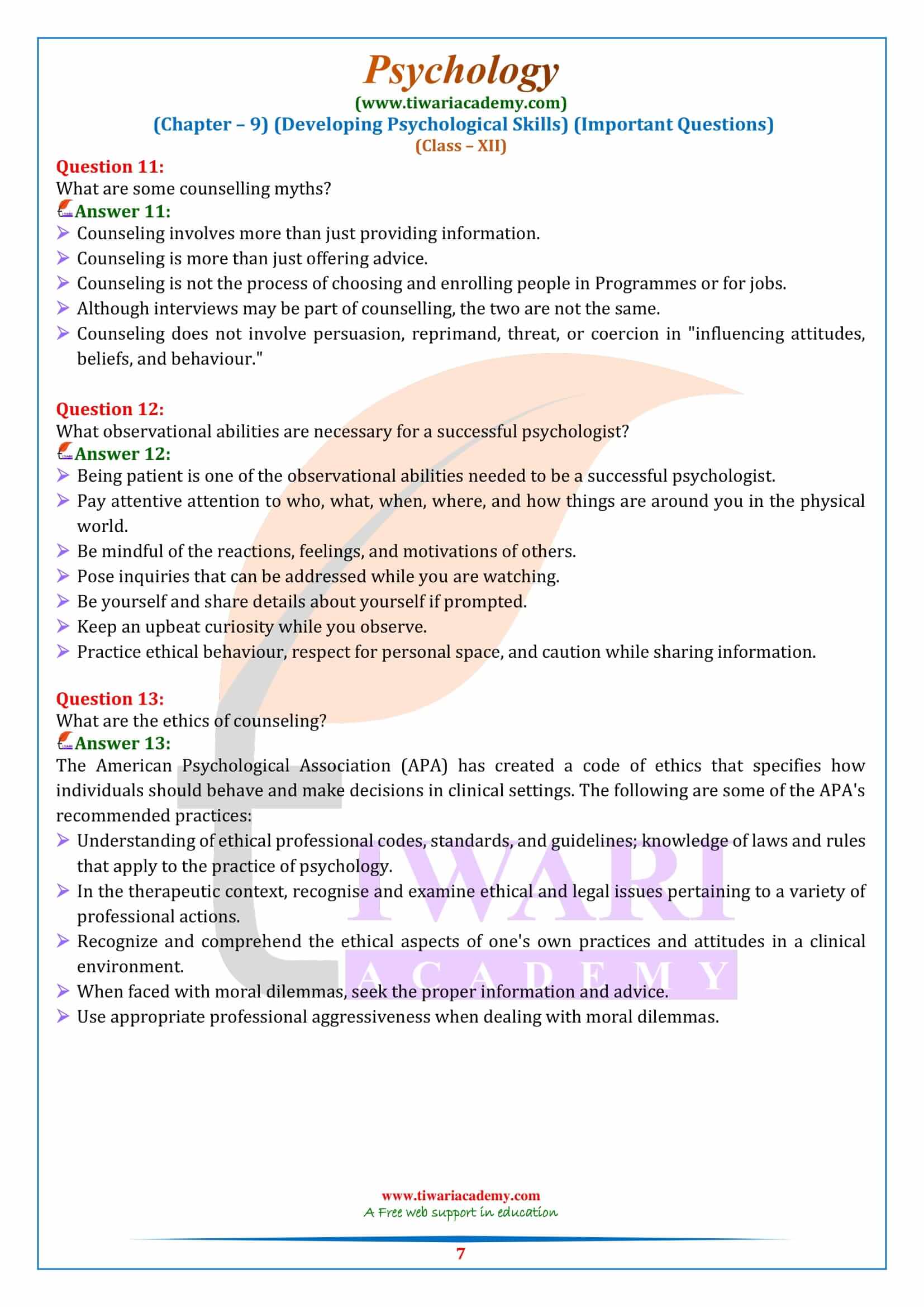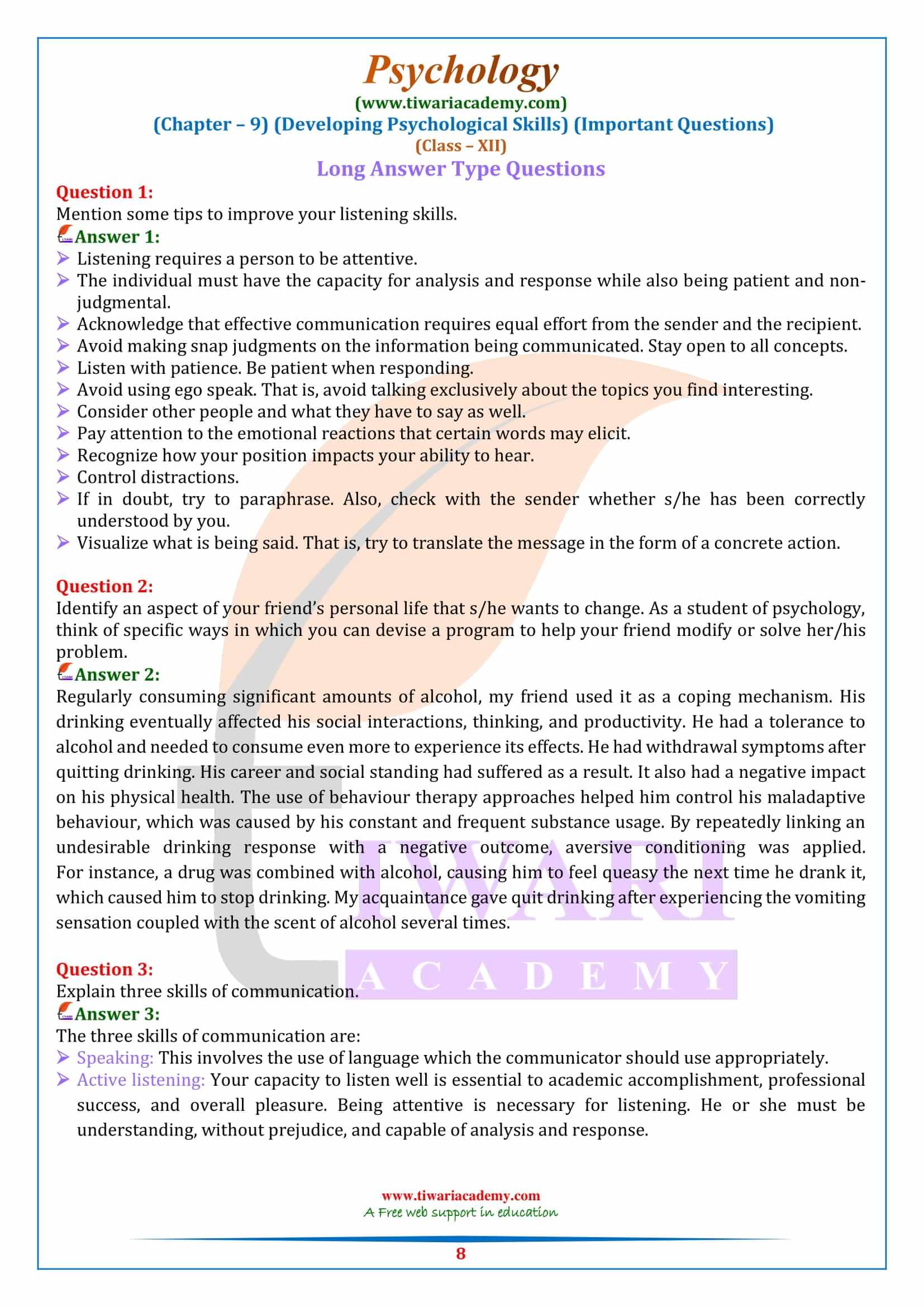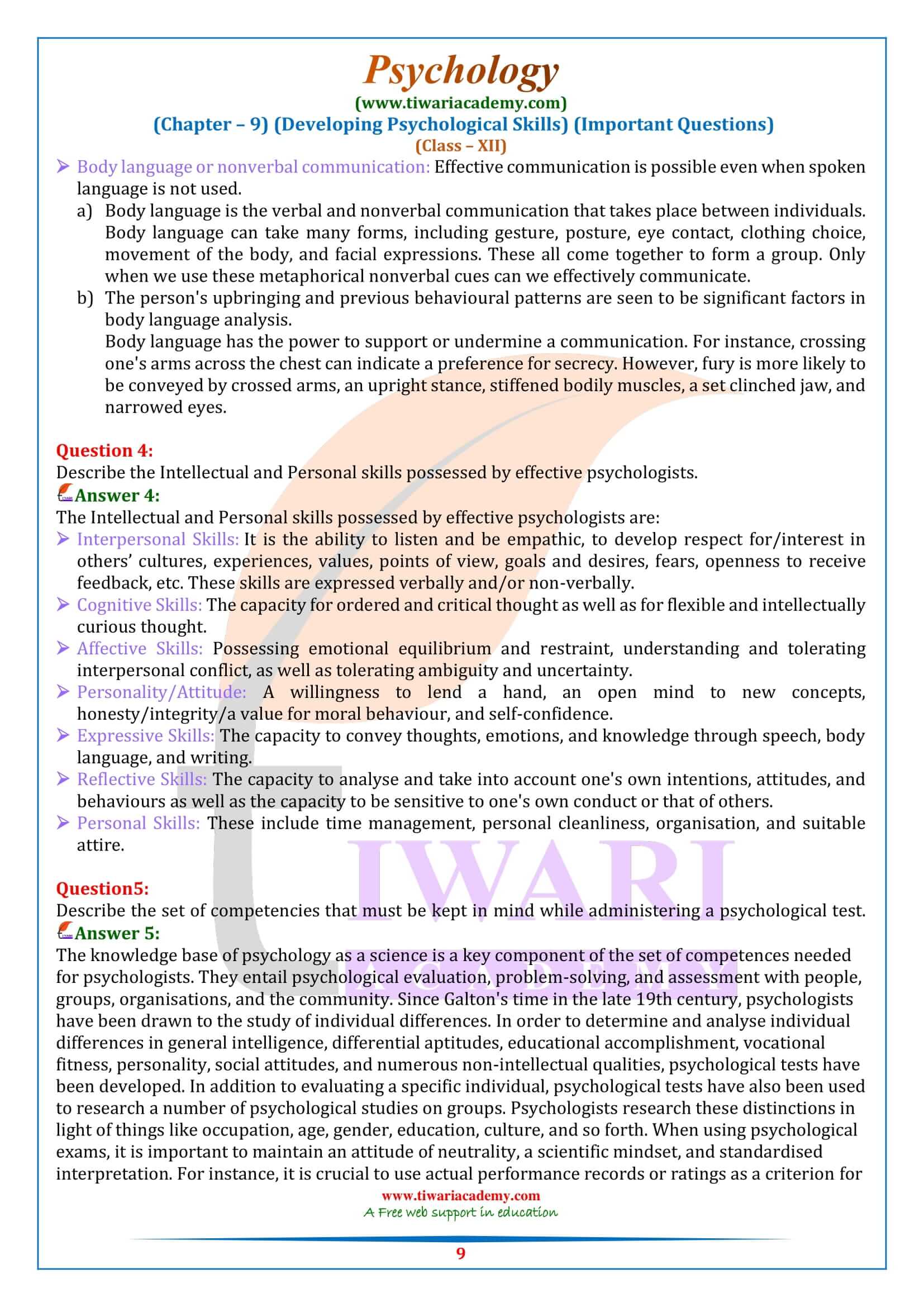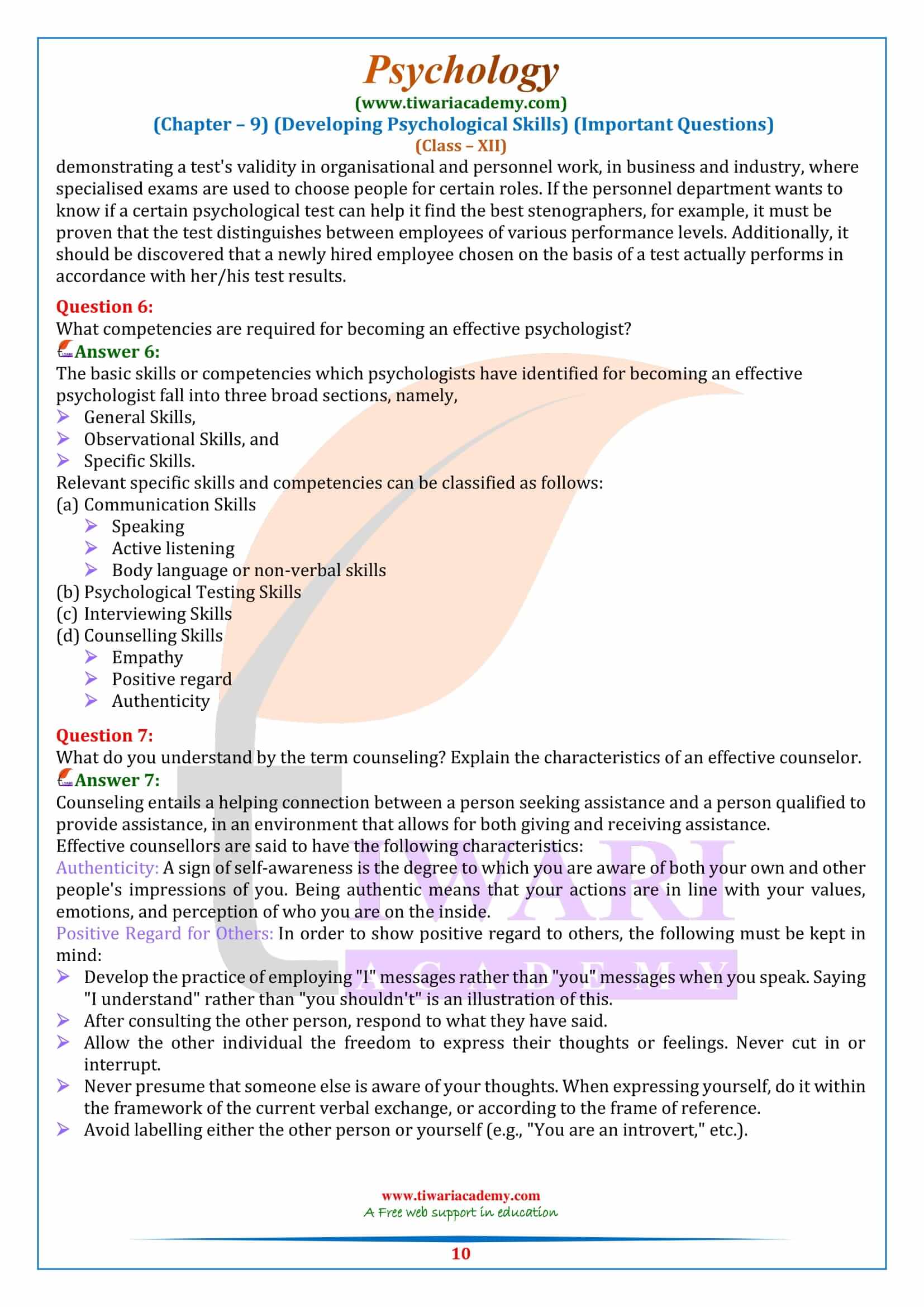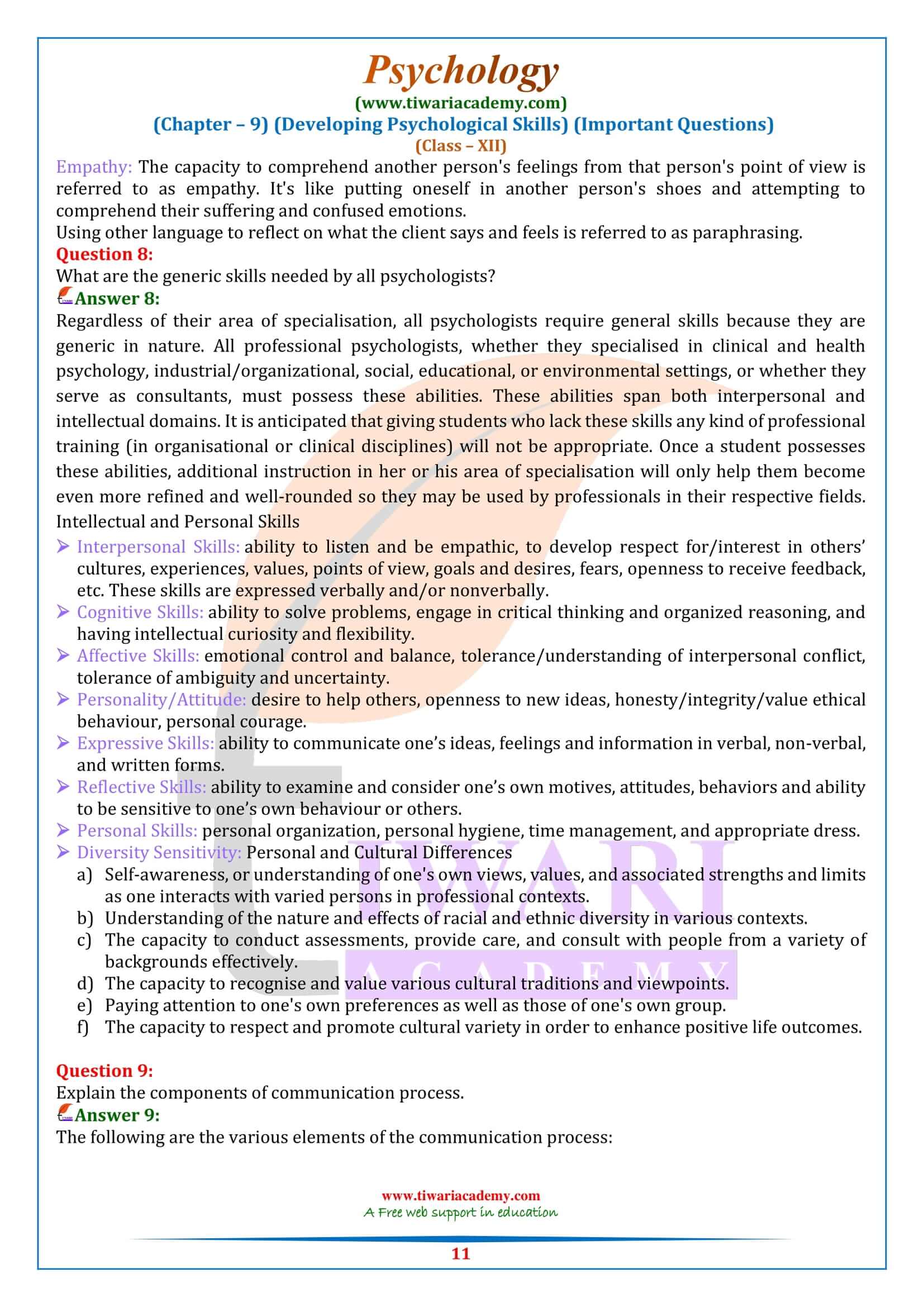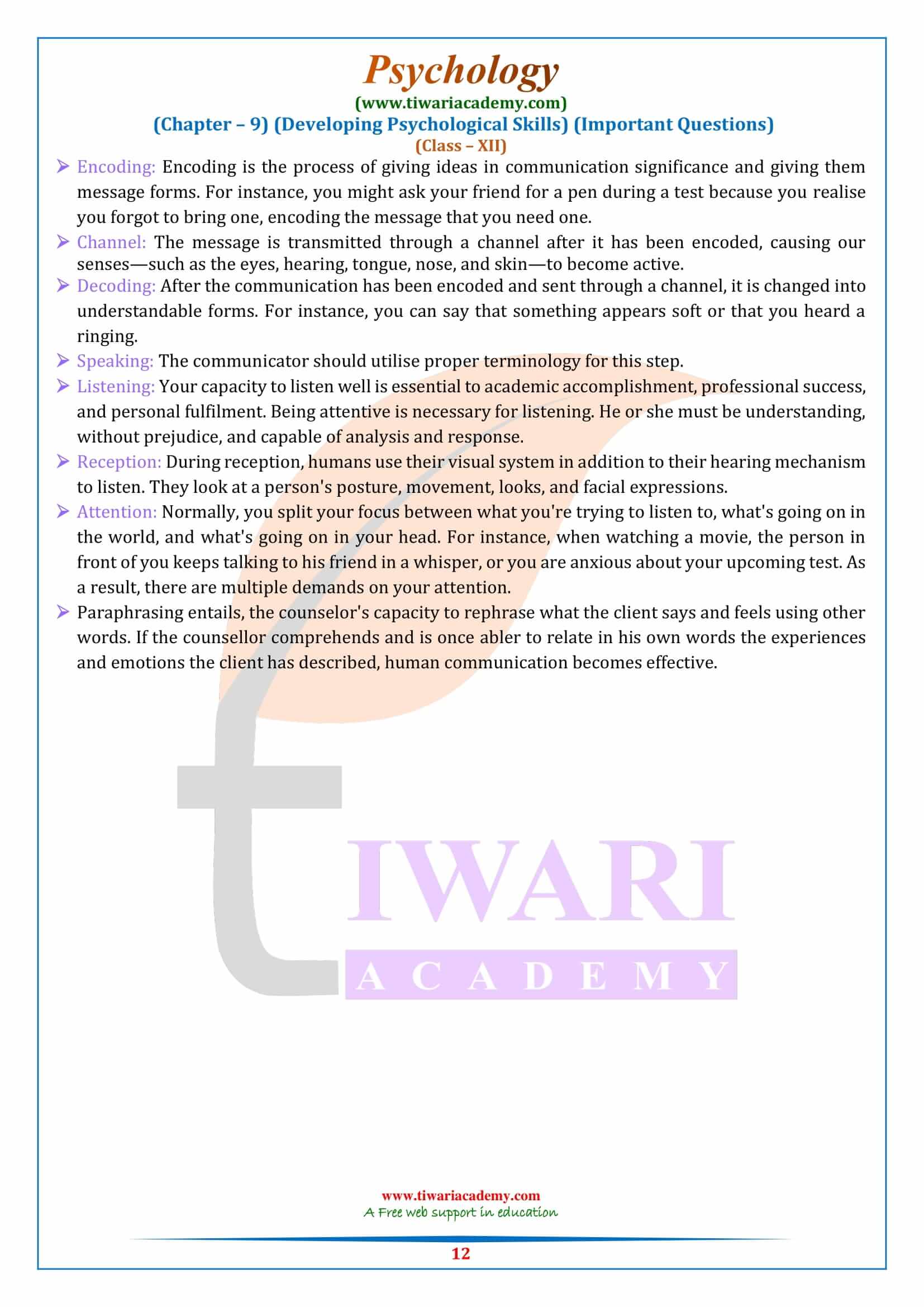Class 12 Psychology Chapter 9 Important Questions of Developing Psychological Skills updated and modified for new academic session 2025-26. Class 12 Psychology Chapter 9 Extra Questions are prepared in such a way it covers all the short and long questions including very short question answers.
Class 12 Psychology Chapter 9 Important Questions
Class 12 Psychology Chapter 9 Extra Questions Answers
What is Decoding?
The communication is translated into comprehensible forms once it has been encoded and transmitted across a channel. You might state, for instance, that you heard a bell or that something seems soft.
Explain ‘encoding’ in the communication process.
Encoding in the communication process involves taking ideas, giving them meaning and putting them in message forms. For example, while taking an examination you realize that you have not brought your pen and you ask your friend for it, i.e., encode a message that you need a pen.
What is Empathy?
Counselors must possess empathy in order to comprehend another person’s feelings from that person’s point of view. It’s like putting oneself in another person’s shoes and attempting to comprehend their suffering and confused emotions.
Differentiate between hearing and listening.
Receiving information via sensory channels is a biological process that goes on during hearing. It is just a small portion of listening. Receiving, paying attention, assigning meaning, and responding to the message being provided are all steps in the act of listening.
What is paraphrasing?
Paraphrasing involves the ability of a counselor to reflect on what the client says and feels using different words. Human communication becomes effective if the counselor understands and is again able to relate in his words what feelings and emotions the client has described.
What is public communication?
Sending a message to an audience is what defines public communication. It may be direct, like when a speaker addresses an audience face-to-face, or indirect, like when a message is broadcast on the radio or television.
Explain non-verbal communication.
Effective communication is still possible without verbal language:
- Body language, which includes gesture, posture, eye contact, clothing choice, movement of the body, and facial expressions, is the language that people communicate without using words. These all come together to form a group. Only when we use these metaphorical nonverbal cues can we effectively communicate.
- The person’s background and previous behaviour patterns are seen to be significant factors for interpreting body language. The discourse might be encouraged or discouraged by body language.
- Crossing one’s arms over the other, for instance, may indicate a preference for secrecy. However, fury is more likely to be conveyed by crossed arms, an upright stance, stiffened bodily muscles, a set clinched jaw, and narrowed eyes.
What are psychological tests, how do psychologists use them, where are they employed, and what skills are necessary?
Psychological exams encompass problem-solving with individuals, groups, organisations, and the community as well as psychological assessment, evaluation, and problem-solving. Understanding individual differences has always been of interest to psychologists.
In order to determine and analyse individual differences in general intelligence, differential aptitudes, educational accomplishment, vocational fitness, personality, social attitudes, and numerous non-intellectual qualities, psychological tests have been developed. Psychologists research these distinctions in light of things like occupation, age, gender, education, culture, and so forth.
When using psychological exams, it is important to maintain an attitude of neutrality, a scientific mindset, and standardised interpretation. For instance, it is crucial to use actual performance records or ratings as a criterion for demonstrating a test’s validity in organisational and personnel work, in business and industry, where specialised exams are used to choose people for certain roles.
Describe participant observation and naturalistic observation.
One of the most effective ways to learn about how individuals act in a particular context is through naturalistic observation. Let’s say you go to a shopping mall to see how people react to a significant discount offered by a business. You may do this by going to the mall where the reduced goods are displayed and carefully observing what people do and say both before and after the transactions are made.
A naturalistic observation technique called participant observation involves the observer actively participating in the process of observation by integrating themselves into the environment in which it is being conducted. For instance, to gain insider access and monitor variances in consumer behaviour, an observer can accept a part-time job at a mall showroom.
What is the role of culture in listening?
Some cultures, such as India, emphasize on listening by being a silent communicator while some cultures focus on controlling attention.
